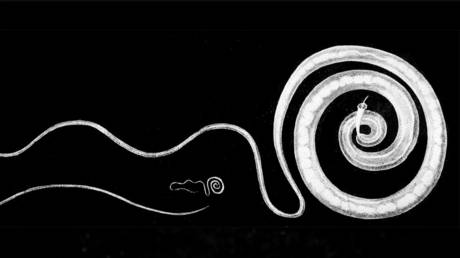
Humans have gained an invaluable weapon in the battle against parasites, after an enzyme variant was pinpointed as the reason for the worms’ ability to survive without oxygen. The bugs live in the guts of around a billion people.
The worm-like freeloaders, known as helminths, colonize human guts after sneaking into the body through dirty drinking water. New research has finally unravelled the mystery behind their exceptional ability to survive in the low-oxygen environment, and the findings raise hopes of new treatments to quell their growing resistance to medications.
When the parasites are outside the body, they breathe oxygen, just like humans. Despite this, they manage to survive in the gut, where there’s almost no oxygen available. They pull off this fiendish trick by changing their metabolism so it doesn’t require oxygen and burns a molecule called rhodoquinone, or RQ.
“Somehow, there has to be a switch,” explained Andrew Fraser, the research paper’s senior author and a professor of molecular genetics at the University of Toronto. “If we could understand how that switch works, and if we could take a small compound and interfere with that switch, preventing it from making RQ, that might be a way to kill a parasite in humans.”
The researchers think that when oxygen levels dip, an enzyme variant flips its inner core so RQ can sustain the parasite’s life. To test the theory, they engineered worm strains that could not make the change and discovered the worms lost their ability to make RQ and could no longer survive without oxygen.
Experts say the discovery opens up an opportunity to specifically target the enzyme in the parasite without harming the host. The findings were published in eLife, an online open-access journal for the biomedical and life sciences.
Like this story? Share it with a friend!




